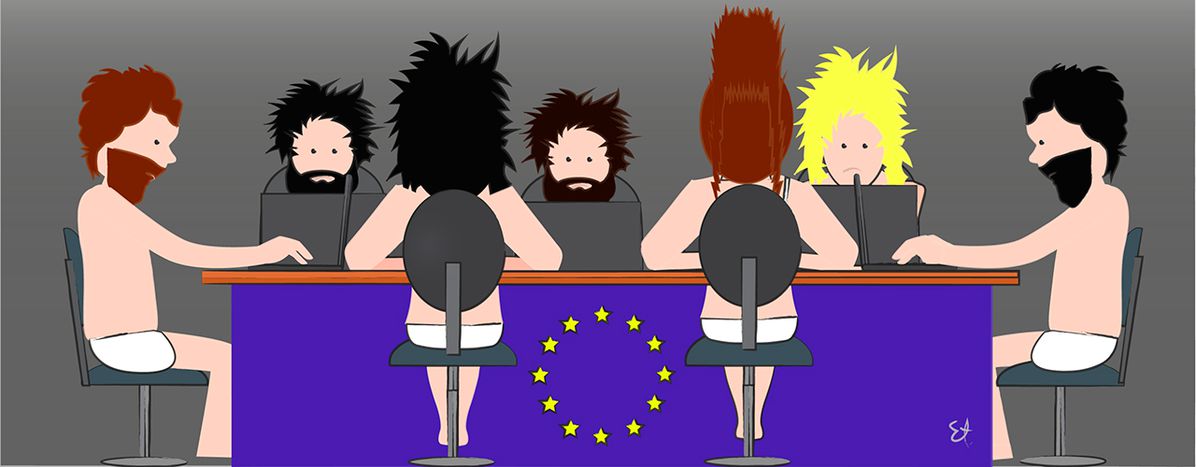
Behind the Numbers: unpaid internships in EU institutions
Published on
Translation by:
Charlotte WalmsleyWorking for free has become the new normal. What is really concerning is that this is happening at the heart of European institutions that claim to put young people first. We take a look at how much young interns are really worth.
"No, I wish! I still haven't found anything. Are you working?"
"Yes, of course, seven hours everyday. Well, in reality, I'm an intern but I do exactly the same things as everyone else."
"Is it paid?"
"No, I tried to get them to cover my transport costs, but it just wasn't possible."
"Well, I guess the most important thing is having stuff for your CV, right?"
....
This type of conversation is not geographically exclusive. It could be heard in Madrid, London, Rome and now in Brussels too, in none other than the corridors of European institutions. Each year, hundreds of young people from every corner of the globe go to work there, with a dream of gaining work experience, growing as people and building a better future. However, the reality they face is not the fairytale they are hoping for. According to the NGO Brussels Interns, there are two types of interns in EU capital. On the one hand, there are interns who have managed to get into the paid internship programme, which pays around 1,300 euros a month. On the other hand, there are those left waiting in the wings. Many unsuccessful applicants decide to take unpaid internships and work for free. Statistics reveal that in June of this year, there were 200 unpaid interns across offices in Brussels. The European External Service has been heavily criticised for not offering any form of monetary support, something that they make clear on their website. In the European Parliament, meanwhile, a survey conducted in 2013 revealed that in the cabinets of MEPs, 20% of workers were not paid and 25% were only paid 600 euros.
There are two problems here. Firstly, their financial impoverishment makes it more and more difficult for young working people to leave the nest and set out on their own. Secondly, the "internship culture" consolidates the elitism of certain sectors, as only those from high income families with a more affluent lifestyle can access these opportunities. "This doesn't only weaken the job market, it also affects the European project and the vision it has for its young people," explains Bryn Watkins of Brussels Interns. Who is able to move to Brussels with no income? Who can justify unpaid work in New York?
Last week was the UN's International Youth Day, whose theme this year was: "The Road to 2030: Eradicating Poverty and Achieving Sustainable Consumption and Production." Putting an end to unpaid work could be the first milestone towards achieving this aim.
---
This article is part of our Behind the Numbers series, illustrating newsworthy stats with artistic design and a brief analysis.
Translated from ¿Prácticas no remuneradas en las instituciones europeas?



